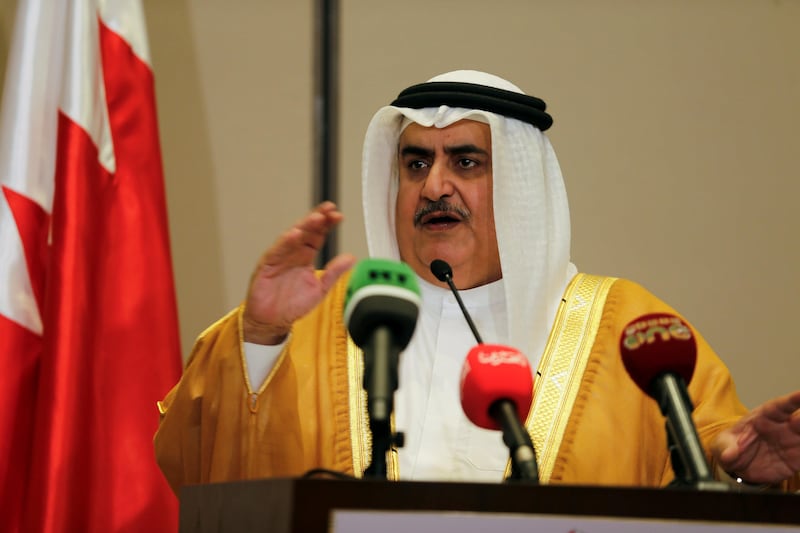The four Arab countries stood firm by their decision to continue boycotting Qatar, saying they are willing to re-establish communication with Doha only if it adheres to regional and international agreements as well as the demands and principles issued by the quartet.
Saudi Arabia, the UAE, Bahrain and Egypt cut all diplomatic and transport ties with Qatar over accusations it was supporting terrorist and extremist groups. Doha denies the allegations.
UAE Minister of Foreign Affairs and International Cooperation Sheikh Abdullah bin Zayed, Saudi Minister of Foreign Affairs Adel Al Jubeir, Egyptian Foreign Minister Sameh Shoukry, and Bahraini Foreign Minister Sheikh Khalid bin Ahmed Al Khalifa met in Manama on Sunday to discuss the GCC crisis, now in its second month.
_____________________
Read our essential backgrounder on the Gulf dispute here: Qatar crisis: What you need to know
_____________________
Sheikh Khalid said during a joint press conference that their discussion was a "continuation of their meeting in Cairo" on July 5, after which they announced a list of six broad principles.
The principles were announced following Doha’s refusal to meet the quartet’s 13 demands, which included the closure of Qatar-owned Al Jazeera news channel - which the quartet says provides a platform for extremists and dissidents - and the shutting down of a permanent Turkish military base in the country.
“We are ready to engage in discussions with Qatar if it expresses its genuine desire to implement our demands,” said Sheikh Khaled, adding: “Qatar must stop funding terrorism, interfering in [other countries’] internal affairs, inciting hatred and adhere to regional and international agreements.”
The quartet said in a joint statement that Qatar must abide by agreements – including the 2013 Riyadh Agreement and the 2014 Supplemental Agreement.
They reiterated their commitment to standing together and fighting terrorism.
On Saturday, Bahrain’s King Hamad bin Isa Al Khalifa met with the foreign affairs ministers at Al Sakhir Palace.
He called for regional and international solidarity to fight terrorism and stop its funding to defeat it once and for all, reported the Bahrain News Agency.
“The four nations have offered many martyrs in our battle against terrorism and in defense of our countries and peoples,” he said. “Our countries continue their efforts to preserve the GCC from any behaviour that might harm the member states or that might negatively affect the people.”
King Hamad reiterated his country’s commitment to the three Arab countries, saying it stands “in the same line with its sister countries in whatever joint measures they may take to confront challenges and risks”.
______________
Read more:
[ Negotiation must replace empty Qatar rhetoric ]
[ Qatar crisis: Doha’s 'secret plan' to sabotage UAE and Gulf states revealed in documentary ]
[ Qatar's failure to keep to 2014 pledge led crisis to boil over, says Al Otaiba ]
[ No compromise on Qatar demands, Egypt tells EU ]
______________
The political crisis, now in its second month, has driven a deep rift between Qatar and its Arab neighbours, who also accuse Doha of having close ties with arch-rival Iran. The four countries recalled their ambassadors and ordered Qataris – with exceptions – to return home.
Kuwait and Oman – both of which are members of the GCC along with Saudi Arabia, UAE, Bahrain, and Qatar – have not taken part in the Qatar boycott.
Kuwait has played a mediatory role to try and resolve the conflict, which was also addressed by the United States and Turkey during visits by top officials to the countries involved.





